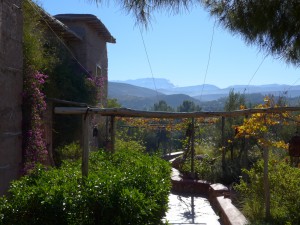
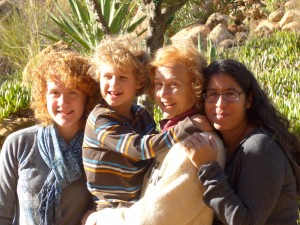 After a delicious breakfast in beautiful surroundings, we set off in the car to try to visit a traditional pottery village outside of Demnate. Our host gave us directions and told us the road was a dirt piste, but in good condition: it should be fine. Unfortunately, despite the fact that the day was sunny and the weather had been dry, the road was a massive mud slick. James drove us part way through, fishtailing wildly, and then paused in a relatively dry spot, and ran a way further down the road to see if the village was in easy walking distance. No joy. We decided discretion was definitely the better part of valor here, and we turned back.
After a delicious breakfast in beautiful surroundings, we set off in the car to try to visit a traditional pottery village outside of Demnate. Our host gave us directions and told us the road was a dirt piste, but in good condition: it should be fine. Unfortunately, despite the fact that the day was sunny and the weather had been dry, the road was a massive mud slick. James drove us part way through, fishtailing wildly, and then paused in a relatively dry spot, and ran a way further down the road to see if the village was in easy walking distance. No joy. We decided discretion was definitely the better part of valor here, and we turned back.
On our way back to the main road, we passed something that looked like a mechanics’ shop, but I noticed people bringing large bags of olives, loaded on donkeys, to the door. “Hey, is that an olive press?” I asked. James stopped the car, we all climbed out, and Mohamed, who was running the press, very kindly let us look around.
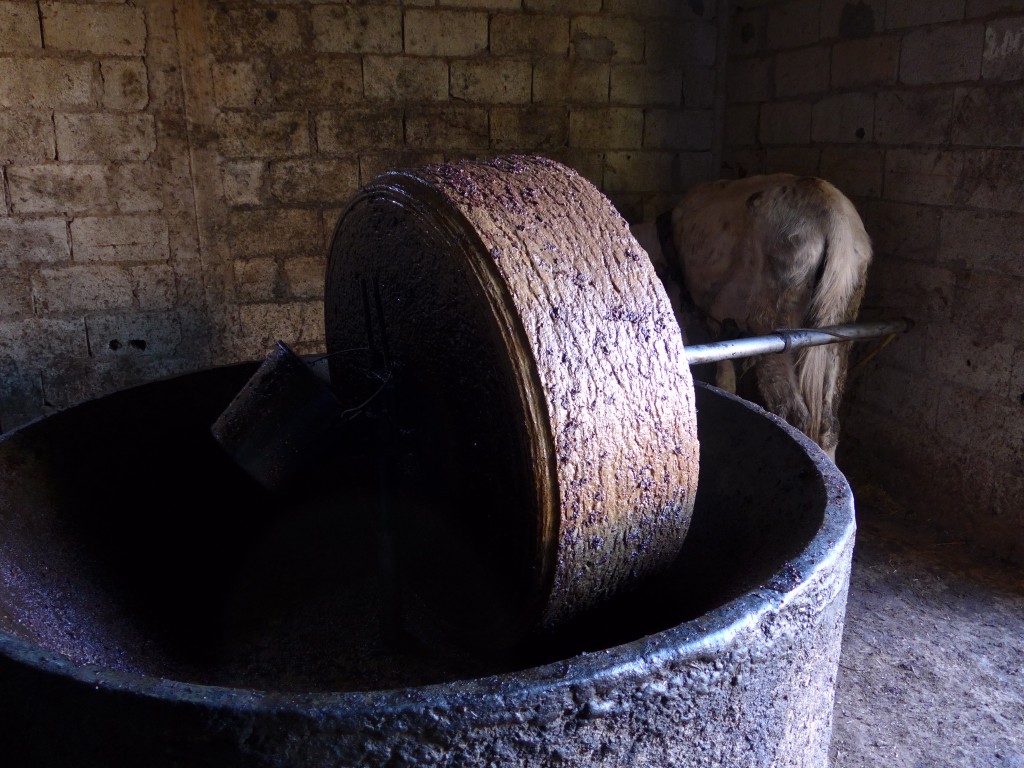 First, the olives are poured into this big stone bowl to be crushed, pits and all, by the millstone moved by the donkey in the corner.
First, the olives are poured into this big stone bowl to be crushed, pits and all, by the millstone moved by the donkey in the corner.
Then the crushed olives are packed into burlap bags, round and flat, and stacked into a traditional press.
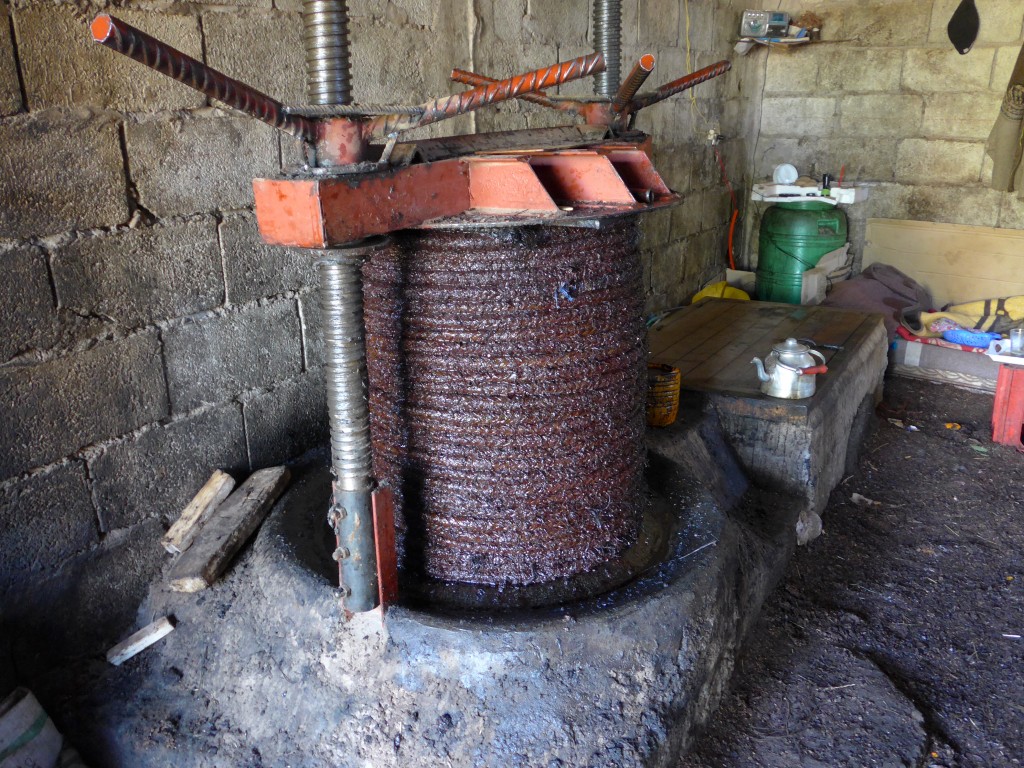
What looks like a rope wound in coils under a vise are actually some 25 of these burlap bags, full of olives, with the juice trickling out of the sides of the bags. If you look closely, you can see it.
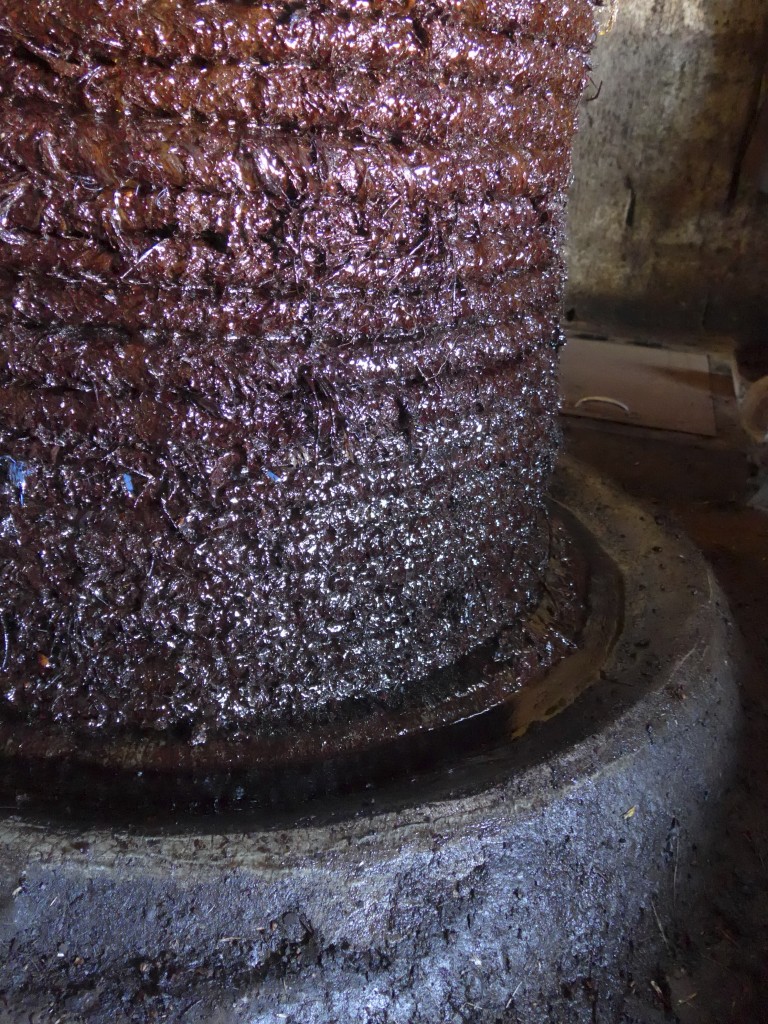 I thought of Keats’s Autumn, “watching the last oozings.”
I thought of Keats’s Autumn, “watching the last oozings.”
The oil collects in the bottom of the press and then goes through a channel under the floor to be bottled outside the building. Mohamed shows us a kind of solid surface to the oil, but I can’t follow what he’s trying to tell us as he reaches in, grabs a handful, and squeezes the oil out of it.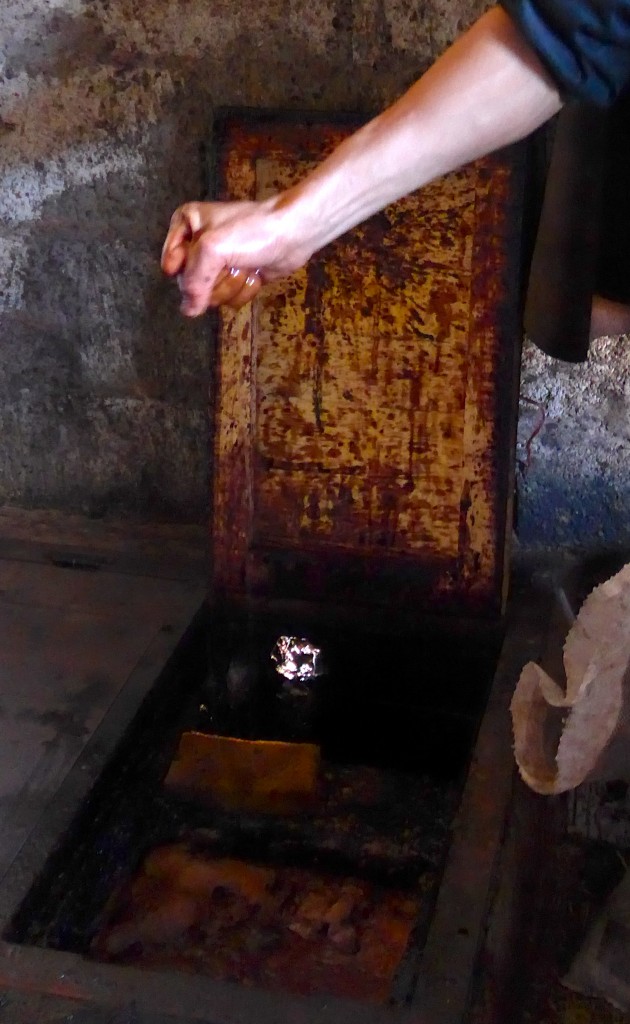 After we get home, Fatima explains to me that the solids of “beldi” olive oil are wonderful for your health. Just as a spoonful of honey in hot water each day is guaranteed to keep us healthy, so drinking a spoonful of beldi olive oil each morning will do wonders for us.
After we get home, Fatima explains to me that the solids of “beldi” olive oil are wonderful for your health. Just as a spoonful of honey in hot water each day is guaranteed to keep us healthy, so drinking a spoonful of beldi olive oil each morning will do wonders for us.
Outside the press, there’s a slag heap of the olive residue, left over from the pressing. Traditionally, this material is burnt, either to heat pottery kilns or occasionally to heat hammams and bakeries.
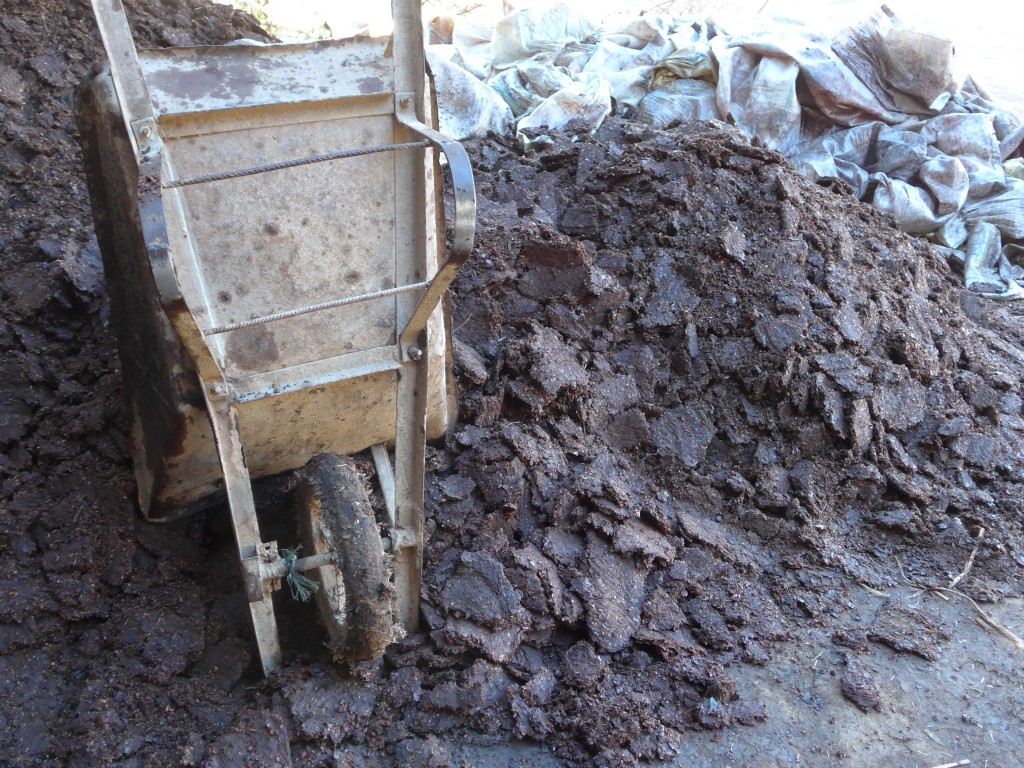 In a traditional way of life, nothing is wasted.
In a traditional way of life, nothing is wasted.
There’s an Arabic or Moroccan proverb which states: “There is something good in every delay.” I can’t always agree, but surely we would never have stopped here if we had not had to turn back from our pottery adventure. Serendipity intensifies the pleasure of discovery.